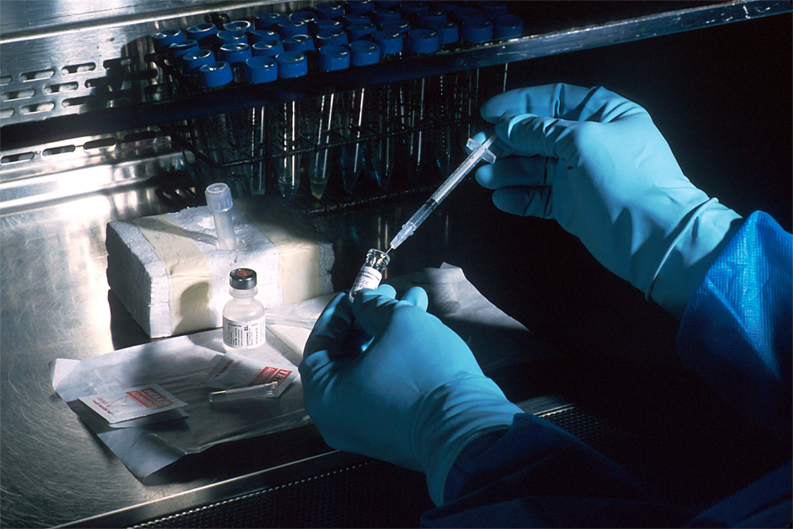Totally Synthetic Vaccine Design Services
Creative Biolabs can offer advanced Totally Synthetic Vaccine Design services for your specific requirements. Vaccines from totally synthetic antigens have been successfully shown to elicit immune responses in preclinical and clinical research. Totally synthetic Vaccines have been proven safe in clinical trials and can also induce antibodies that react with abnormal cells expressing corresponding antigens. Despite the known heterogeneity of transformed cells, the most well studied vaccine is still single carbohydrate antigen. The progress of synthetic organic chemistry makes it possible to prepare vaccines containing several different antigens in a single molecule.
Development of Synthetic Peptides
The development of synthetic peptides in the field of vaccines depends on the identification of immunogenic sites. The most notable example is foot and mouth disease, where protection was achieved by immunizing animals with a linear sequence of 20 amino acids. Synthetic peptide vaccines have many advantages. Synthetic peptide vaccines have many advantages. Their antigens are very accurate and specific and therefore usually do not cause side reactions. The vaccines are stable with low cost and easy to administrate. In addition, it is easy to adapt to changes due to the natural variation of the virus, which is a great advantage for unstable viruses such as influenza.
Due to their small size, synthetic peptides behave like haptens and do not readily stimulate T cells. So it needs to bind to the protein carrier which can be recognied by the T cell. It is known that synthetic peptides can be highly immunogenic in their free form as long as they contain T helper cell in addition to B cell epitopes. Such T cell epitope may be provided by a foreign antigen, a carrier protein molecule, or within the synthetic peptide itself.
Synthetic Vaccine Particles

There are a variety of promising nano-sized tools for biomedical applications, of which synthetic vaccine particles are increasingly being used because of their ability. Synthetic vaccine particles deliver antigens and drug to APCs (antigen-presenting cells) in an efficient manner similar to viruses. Creative Biolabs now offers rational design services for synthetic vaccine particles to facilitate vaccine development and immunotherapy. Our synthetic vaccine particles technology platform is designed and optimized by our talented scientists to incorporate a wide range of antigens and immunomodulators for the treatment of a variety of cancer and chronic infections. Our synthetic vaccine particles have also been designed to encapsulate with both antigens and potent adjuvants. Synthetic vaccine particles carrying adjuvants enhance the immune response to the encapsulated antigen and exhibit strong local immune activation without inducing systemic cytokine release.
Advantages
- Easy to produce with low costs
- Feasible even if virus cannot be cultivated
- No other virus or external protein, so less toxic
- Easy to adapt to changes due to the natural variation of the virus
Disadvantages:
- Immunogenicity is lower compared with conventional inactivated whole-virus vaccine
- Need primary course of injections followed by boosters
- Need adjuvant
- Cannot elicit CMI
- Not applicable to all viruses (e.g., polioviruse, which is made up of 2 or more different viral capsid proteins)

Creative Biolabs provides our customers a series of Totally Synthetic Vaccine Design services. We are confident in providing highly stable and qualified products for our clients all over the world.
All of our products can only be used for research purposes. These vaccine ingredients CANNOT be used directly on humans or animals.


